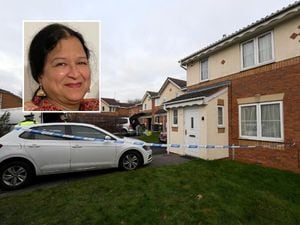Violence and hate crime tackled in action to cut repeat offending
Plans are being drawn up to help reduce crime in Walsall – with repeat offenders accounting for more than a quarter of the borough's crime.

The number has risen in the past year, leading council bosses to prioritise tackling issues such as violence, hate crime, and drug and alcohol misuse in communities.
A report to Walsall's overview and scrutiny committee heard that an analysis of organised crime in the West Midlands showed there are "generations of criminals who have taken advantage of some of our most deprived communities and caused them harm, literally for decades."
Analysis shows that the vast majority of offenders committing crimes in Walsall are from Walsall rather that people travelling to the borough from outlying authorities.
The investigation, carried out for the Walsall Community Safety Partnership strategic assessment 2019, found that 479 offenders had committed two or more crimes in the past 12 months, accounting for 27.5 per cent of individual offenders.
The figure was higher than the previous year, with violence and sexual offences are consistently the most reported crimes in the area.
The link between re-offending and drug and alcohol misuse has long been established with treatment for addiction high on the borough's agenda.
Last year there were 1,288 people in drug treatment in Walsall out of an estimated 1,915 users and 446 in alcohol treatment out of 3,360 potential victims.
The integrated drug and alcohol treatment service is considered an "essential" part of Walsall's crime reduction programme, it was said.
Symptoms of serious organised crime, identified nationally, include violence, drugs, fraud and cyber-crime, acquisitive crime such as theft and burglary, and exploitation.
The West Midlands organised crime report stated: "They[criminals] have been able to get away with the majority of what they do because they act like a business that rapidly adapts to the changing environment and is difficult to understand because of the layers of complexity that they create.
"It is as if they appear hidden in plain sight."
The National Crime Agency advocates moving from tackling the symptoms to "dismantling the underlying systems".
The Safer Walsall Partnership identified six priorities after consultations with local communities and businesses.
They include reducing violence, preventing violent extremism, reducing substance misuse, bringing down re-offending, working with communities and reducing serious organised crime.
Work is now under way to to identify people to lead work on each priority and draw up initial draft proposals.
The plan was endorsed by the scrutiny committee and will now go to a meeting of the cabinet in October.





